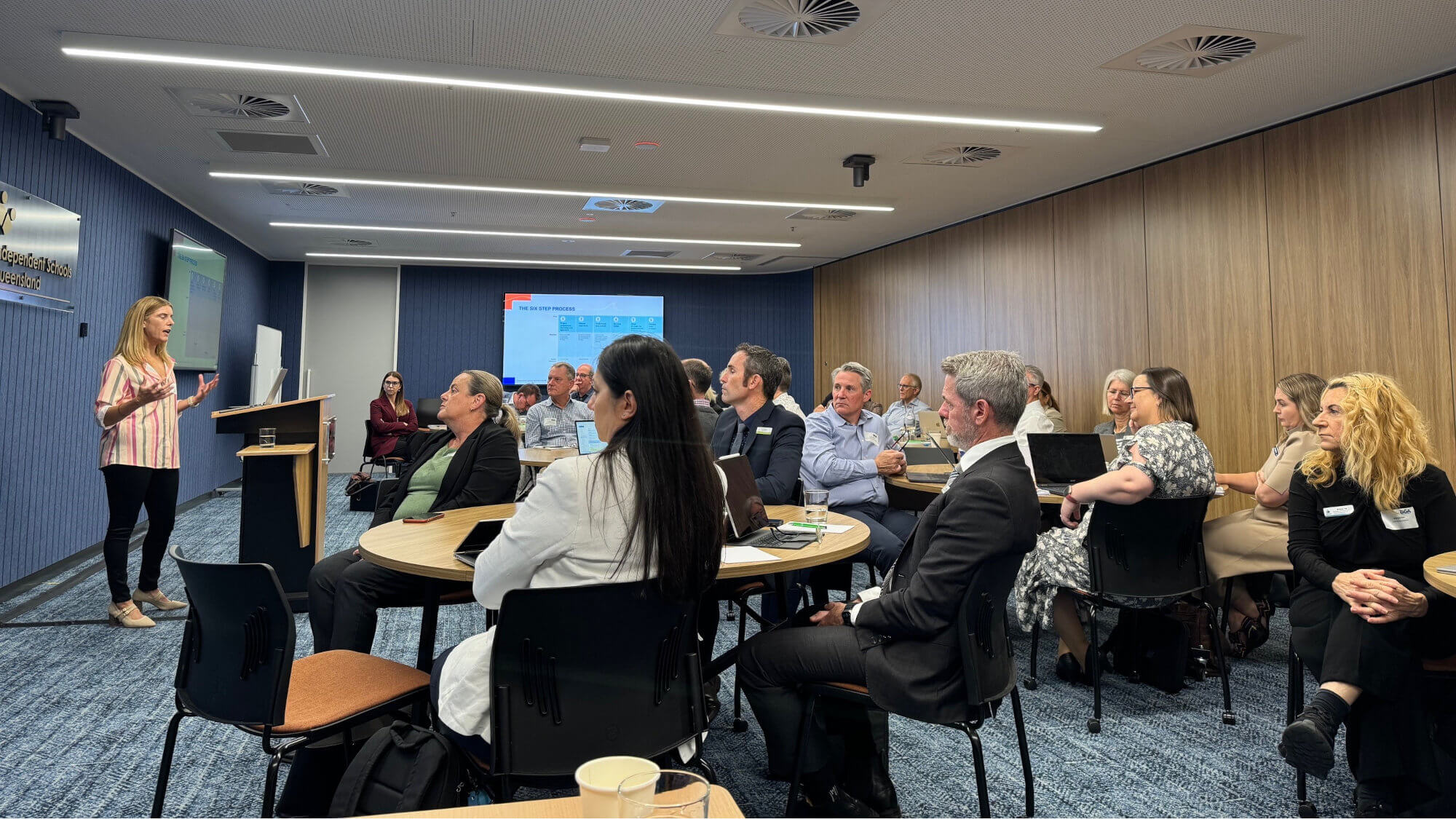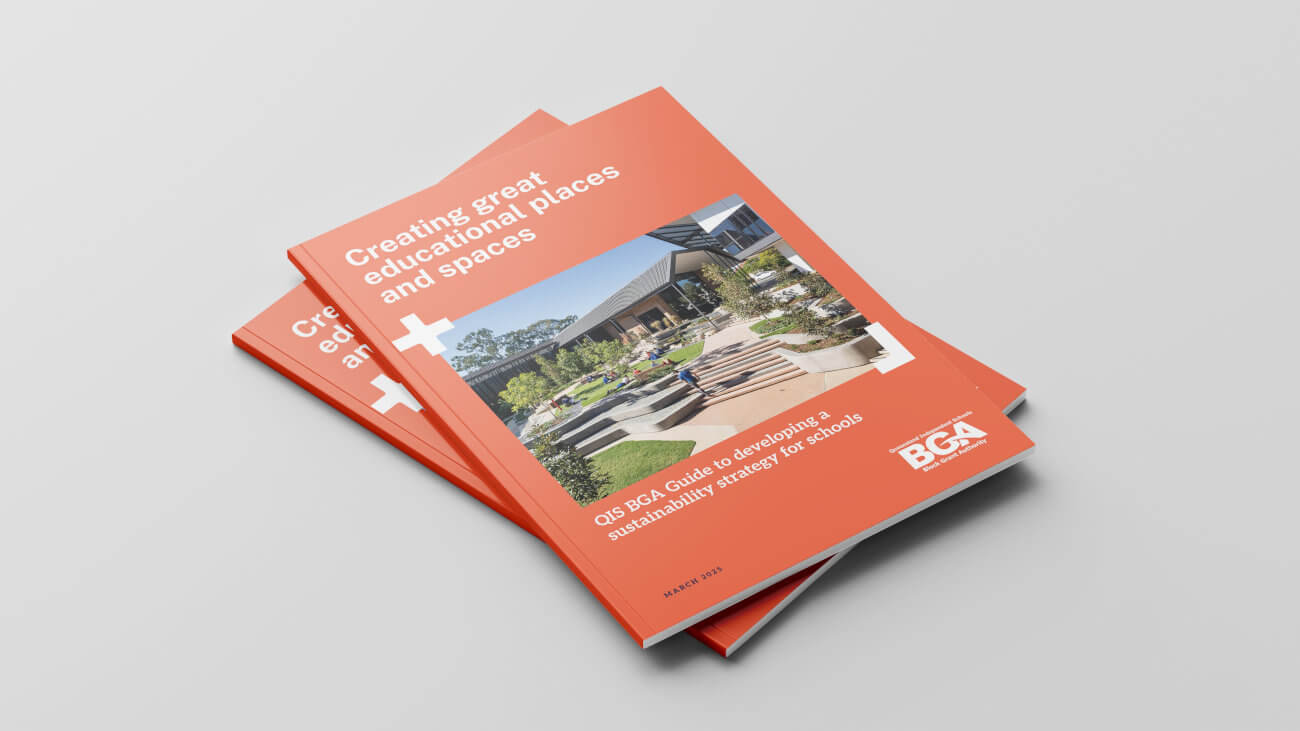Integrating sustainability in Queensland schools

Project overview
Practical tools for integrating sustainability
Schools play a vital role in shaping future generations and the future of the planet. There’s a growing appreciation among schools and teachers about the benefits and importance of integrating environmental and social responsibility into school curriculums and operations. This integration can drive change within our communities, making them more sustainable and resilient to climate change.
However, Australian schools continue to face challenges in implementing sustainability strategies. In some cases, up to 70% of the water used in schools is wasted, energy bills can be 25% higher than necessary due to inefficient practices, and often classroom waste is neither reused nor recycled.
While most schools in Queensland support the inclusion of sustainability in their operations and curriculum, many struggle to know the best place to start and how to achieve the best value and outcomes due to time pressures and resources.
To address this challenge, we partnered with the Queensland Independent Schools Block Grant Authority (QIS BGA) and education stakeholders, to create the School Sustainability Guide and supporting Toolkit. These resources are designed to help Queensland schools begin or develop their sustainability journeys and turn their ambitions into action.

Understanding the value of a school sustainability strategy
Research has found that integrating sustainable practices into schools' operations and curriculums can:
- Create healthier learning environments, leading to increased productivity and reduced absenteeism.
- Reduce costs, by improving the energy and water efficiency of built assets and reducing waste.
- Improve resilience and compliance, by responding to sustainability and climate reporting regulations, and better positioning schools to secure funding for sustainability initiatives.
- Prepare students for the future, by improving the outcomes of sustainability education and fostering a responsible, future-focused learning environment.
- Strengthen community engagement and reputation, while increasing their resilience to climate change.
A whole-school approach to sustainability reinforces classroom learning and moves students and the school community beyond merely acquiring the relevant knowledge and skills. It also fosters motivation and creates opportunities for taking meaningful action towards minimising environmental impacts within the school and in collaboration with the broader community.
Developing a holistic sustainability framework for schools
The QIS BGA identified a need for resources to help Queensland schools implement sustainability initiatives in a meaningful and impactful way. An effective sustainability strategy should provide a clear framework to holistically integrate sustainable practices into a school’s daily operations, teaching, and campus buildings, facilities, and infrastructure.
The resulting School Sustainability Guide and supporting Toolkit, that we developed in collaboration with QIS BGA, provides schools a roadmap and a process to integrate sustainability objectives into their long-term vision and master plan.
Our sustainability experts facilitated four workshops between 2024 and 2025, providing valuable insights and practical tools to help schools and educators in Queensland shape and refine their strategies. Participants left with an understanding of the importance of sustainability in schools, ideas for initiatives they could implement, and tools and resources to map their vision and journey. They also reported feeling more inspired and confident in their ability to implement and sustain their initiatives.
“It makes such a difference to be able to collaborate with other like-minded people AND receive step-by-step assistance when creating a document, such as a Sustainability Strategy, for the very first time,” said Alison Scott, chief financial officer at Ipswich Girls’ Grammar School, who attended one of the Mott MacDonald-facilitated workshops. “The tools and the guidance received is very much appreciated - this task does not seem as daunting anymore!”
The School Sustainability Guide
The School Sustainability Guide offers practical advice to help schools develop a tailored sustainability strategy, identify their unique priorities, and actively engage the broader school community in valuing and participating in the journey.
It provides guidance on how to:
- Align the strategy with the school’s priorities and broader strategic and master plans,
- Secure buy-in from multiple stakeholders, including the school board, teachers, students, parents, facilities and asset management staff, and the broader community,
- Include sustainability reporting in board discussions,
- Estimate time, budget, and human resources needed to implement initiatives, and
- Get clarity on what they want to achieve, and how to measure and share successes and learnings.
After working through the guide, schools will have a strategy that they can use to help communicate and implement their sustainability ambitions and formal action plan.

The Sustainability Toolkit
The Sustainability Toolkit offers schools resources to support the implementation of the guide. It supports them through defining their vision, assembling the right team, conducting school audits, setting benchmarks and goals, and measuring and celebrating success.
The framework outlines five key themes or focus areas, enabling schools to transform the concept of sustainability into practical, measurable initiatives:
- Energy and carbon
- Total water cycle
- Zero waste and circular economy
- Cool and healthy learning environments
- Nature-based solutions
For each focus area, the toolkit includes resources, considerations, and activities to support collaboration, including:
- Checklists
- Worksheets
- Megatrends and resource cards
- Vision worksheet and activity
- Detailed audit templates
The themes, recommendations, and activities provide a whole-school approach to design, across environmental, social, and economic factors, while helping schools to foster a culture of sustainability.
"At Mott MacDonald, our purpose is to use our expertise for the benefit of our clients and the communities they serve. The School Sustainability Guide and Toolkit embody this mission, providing schools with the resources and strategies needed to create healthier, more resilient learning environments for future generations," says Anne Kovachevich, technical director sustainability, at Mott MacDonald.
Continuing the sustainability journey
With the free Sustainability Guide and Toolkit, schools can now adopt a holistic approach to sustainability, focusing on a comprehensive framework beyond just carbon and renewables. By developing a deep understanding of their environmental impact and implementing initiatives to mitigate these effects, schools can ensure that sustainability becomes a structured, measurable commitment that benefits not only students and staff, but also the wider community.
Subscribe for exclusive updates
Receive our expert insights on issues that transform business, increase sustainability and improve lives.












